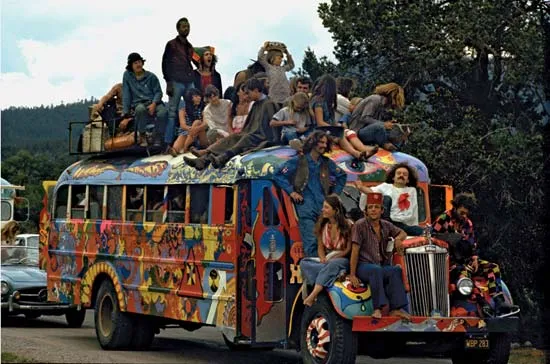How Much Caffeine Is in White Tea?
အောက်ဆုံးထိ ဆွဲကြည့်ပေးကြပါ ခင်ဗျာ
White tea is a popular beverage full of flavor and health-promoting properties.
Unlike black and green teas, which lend bold flavors, white tea is known for its light, delicate aroma and taste. Therefore, many people wondering whether it contains the same amount of caffeine as its counterparts.
This article tells you how much caffeine is in white tea.
What is white tea?
White tea comes from the Camellia sinensis plant and is generally defined as a type of green tea coming from Fujian, a province on the southeastern coast of China. It’s harvested from young tea leaves or buds that are covered in tiny white hairs — hence the name “white” tea.
The most popular white tea grades include Silver Needle (Bai Hao Yin Zhen) and White Peony (Bai Mudan), which are the least processed and mostly involve the tea buds rather than the leaves.
The main difference between white tea and other teas is that white tea undergoes minimal oxidation — also known as fermentation. As a result, it’s very delicate with a uniquely light aroma and flavor.
Does white tea contain caffeine?
White tea is a form of green tea, and it likewise contains caffeine. Though, experts estimate white tea contains 15% less caffeine than traditional green tea.
White teas contain 6–55 mg of caffeine per cup (250 mL), though this varies depending on numerous factors, including:
- Type/grading. Silver Needle (Bai Hao Yin Zhen) contains the least amount of caffeine, as it’s only made using tea buds, rather than leaves. The buds contain hydrophobic — or “water-fearing” — hairs that may make extracting caffeine more difficult.
- Brand. Depending on the processing and harvesting techniques used, significant differences in caffeine content can exist between white tea brands.
- Size. Loose leaf tea is usually lower in caffeine, compared with crushed tea leaves in tea bags.
- Temperature. Steeping white tea above 194°F (90°C) leads to significantly higher caffeine levels.
- Time. The longer tea is steeped, the more caffeine that’s extracted from the tea leaves or buds. Studies show that steeping tea for over 7–10 minutes significantly increases its caffeine content.
However, compared with other caffeine-containing beverages, white tea is still a much better option if you’re trying to lower your caffeine intake:
| Beverage | Caffeine content (per cup/250 mL) |
|---|---|
| White tea | 6–55 mg |
| Green tea | 30–70 mg |
| Black tea | 47–90 mg |
| Coffee | 96 mg |
| Energy drink | 164 mg per regular can (16 ounces/473 mL) |
| Soda | 34 mg per regular can (12 ounces/354 mL) |
Caffeine-free alternatives
If you still want to drink regular white tea but reduce its caffeine content, be sure to only steep it for 1–5 minutes below 194°F (90°C) (4Trusted Source).
Alternatively, you can opt for decaffeinated white tea. Though, be sure to read the label to make sure it clearly states “caffeine-free” or “decaffeinated.” Even then, trace amounts of caffeine may remain.
To ensure no caffeine at all, give herbal teas a try. Unlike other teas, herbal teas aren’t true teas, as they don’t come from the Camellia sinensis plant but rather from dried fruits, flowers, spices, or herbs .
Finally, you can opt for caffeine-free sodas, juices, or flavored water.
- Hippies: The 1960s Youth Movement That Redefined Freedom, Peace, and Love

- What is soft skill? Definition, Importance, and Examples

- Get Your Vitamin P: Why Pleasure Matters When It Comes to What You Eat
- Are Canned Beans Healthy? Nutrition, Benefits, and Downsides

- What is the message of the song “Imagine” by John Lennon brainly?

- What is the mean of Wind of Change ?



The article is good but music is better 🐱 Thanks C4A
Thanks 💯
Thanks all 🌸
I would like to drink
I appreciate you sharing that 💛
Thanks.
Thanks
(◠‿◕)It’s so cool👍
Thanks for your white tea article and nice lyrics 🎶✨
Thanks for your white tea article and nice lyrics 🎶✨
Good to know. Very interesting article.
Your articles are full of amazing knowledge to read and the music is so relaxing
I swear I like traditional green tea so much that I can’t stop eating it.
Healthy dose of caffeine consumption is really necessary for everyday routine but it may not apply to those who has health issues with caffeine. Just my concern 😎
😘😘
White tea contains 15% less caffeine than traditional green tea. It’s suitable for me because I’ve got palpitation with caffeine.
I like all types of ☕ tea..
Thanks lots for sharing knowledge and good song 😍
White tea is very delicate with a uniquely light aroma and flavor. I would like to drink it 😋
I like everything about tea.This is a great article for those who don’t like caffeine.Thanks you for all.🤗✨ I like the song you chose.May all those who are homesick return home quickly.🙏💪🕊️
Thanks for sharing…